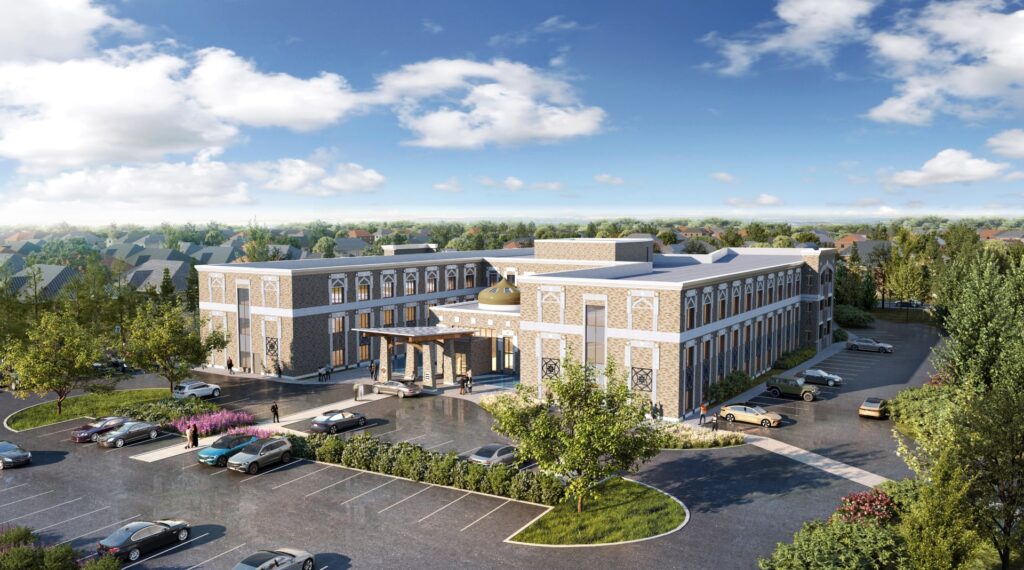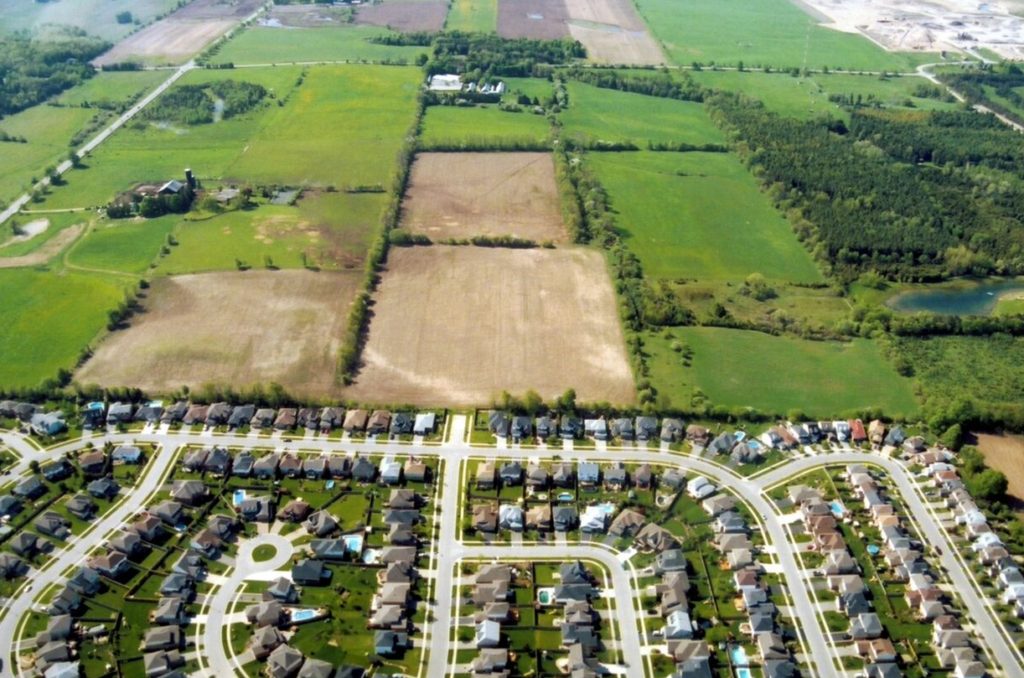Editor’s note: This article was originally published on Chris George’s Substack – the By George Journal. It is republished here, in slightly abridged form, with permission of the author.
The country’s immigration trends have been a growing concern for Canadians, yet during this federal election campaign immigration policy has been fully eclipsed by anxieties relating to U.S. President Donald Trump and the threats posed by American tariffs. Political rhetoric stirring up a mix of fear and loathing about Trump politics has squelched any discussion about the consequences of the Liberals’ open borders policies and the bundle of associated issues regarding Canada’s crisis in housing, strains on health care and social services, and worry over public safety with rising crime and continuous protests in the streets.

Canadians will not likely have the benefit of a policy debate about how, after 2015, the country’s immigration policies were loosened and altered from their long-standing, systematic intake of new immigrants, welcomed into Canada to contribute to the economy and attain citizenship. Canadians also will not have a chance to hear answers to questions on the millions of immigrants – and migrants – who have been brought into the country in the last five years.
Numbers have skyrocketed and are now at a record pace with immigrant or permanent resident status, temporary foreign workers, education permits, international mobility program admissions, and refugee and asylum seekers. Statistics Canada reports that in 2021 immigrants accounted for 643,853 people, or 2.1 per cent of Canada’s population. Two years later in 2023, due to the annual higher intake across the five immigration categories, that number rose by a multiple of almost six to over 3.6 million people or 9.1 per cent of Canada’s population (editor’s note: the 9.1% figure accounts for all immigrants who have not yet attained Canadian citizenship – Canada’s total percentage of foreign-born was 23% in the 2021 census).

The Liberals’ post-pandemic immigration boom has contributed largely to a critical national housing shortage. The current ratio of new immigrants to housing starts is more than five-to-one and this startling shortfall is being complicated by the fact that immigration is increasing while housing starts are declining. In a similar manner, the recent immigration boom is unsustainable when considering the Canadian health care system, delivery of social services from food security to education, and the ongoing welfare costs for daily living expenses for new and dependent migrants. The total annual bill for Canadian taxpayers to support migrating people is in the billions; Blacklock’s Reporter documented that there was a $1 billion line item in the 2023 federal budget just to pay for short-term accommodation and temporary health-care coverage for asylum-seekers and refugees.
There is also the social unrest that Canadians are now witnessing on a regular basis in the streets, from prayer sessions jamming traffic in downtown cores to angry protests harassing businesses and chanting hateful cries, including “Death to Canada”. Though not acknowledged by most political representatives, and not being covered in legacy media, the social tension and ugly, disturbing street scenes caused by the protests from university campuses in Montreal to the Jewish neighbourhoods in Toronto, are taking a toll on Canadians who are increasingly fearing for their own safety.
Liberals’ approach to immigration
The country’s current immigration challenges are a direct result of the Liberals’ policy decisions. The foundational policy paper for the Trudeau Liberals’ approach to immigration was written in 2016 by the federal Advisory Council on Economic Growth, which recommended there be a 50 per cent increase in annual “permanent resident” immigration levels. In concert with this policy document, the government signed the United Nations (U.N.) Global Compact for Migration that set in place an open borders system for “safe, orderly and regular” migration from third world countries.
Last fall the Liberals made overtures to concerned Canadians that the government would adjust immigration levels across the five categories, including setting new targets for permanent resident status. It is this adjusted immigration policy that Mark Carney has adopted as his own. During the campaign, one promise Carney has made is to maintain the reduced intake of immigration until planning for housing becomes “sustainable”. Carney is quoted as saying, “Post-COVID, there was a surge in immigration… and we have not lived up to the bargain with those people. There’s not adequate housing [and] not everyone who came here for an education was getting an education they would expect.”

Although in the French Leaders’ Debate on Wednesday Carney stated “the system isn’t working”, he has not specified details of the Liberals’ go-forward policy and there is no indication that any of the current policies will be reviewed. On one hand the Liberal platform suggests increased immigration is needed for economic growth, but on the other hand there is the point made that the government will take time to assess the readiness for increased immigration. Carney has observed a few times during the campaign, “There’s not a predetermined point when one would remove or adjust those caps.”
On a related note, Carney has selected for his core advisors two of the central figures responsible for entrenching the Liberals’ immigration policy in 2016 and 2017. Mark Wiseman is one of the key advocates advancing the idea of growing Canada’s population to 100 million. Carney’s new chief of staff, Marco Mendicino, was the immigration minister responsible for adopting the migration policies recommended by the U.N. Together, these two men will be in a Carney prime minister’s office managing the government’s agenda.
Conservatives’ approach to immigration
By contrast to the vagueness of Carney’s comments on future immigration policy, Pierre Poilievre has announced specific criteria that will form the parameters of a reformed immigration program under a Conservative government. In policy statements dating back to August 2024, Poilievre has repeatedly signaled Conservatives would bring in tighter immigration controls. He would establish a policy with a direct link between immigrant population growth and a set of data comprising housing starts, access to health care, and job creation. One comment he has made during the campaign is that he would set the number of immigrants permitted as permanent residents for a given year by the number of housing starts registered in the previous year.
The Conservatives also promise to cap the number of asylum seekers admitted into Canada and to crack down on alleged illegitimate asylum claims. They would crack down on fraud related to international student programs and temporary foreign worker visas. At the same time, there will be an easing of accreditation for foreign-trained professionals to practice their professions in Canada. Furthermore, Poilievre has promised there would be a reduction in the number of non-permanent residents in Quebec and that Quebecers would have more authority to choose the province’s temporary immigrants.
At the start of the campaign, he criticized the Liberals’ policy approach, calling it both “radical” and “globalist”. Poilievre commented, “The Liberals destroyed our immigration system in their first three terms in power. A Conservative government will get back to moderate, reasonable levels of immigration.”
“Our country was built by common sense immigration,” observed the Conservative Leader, and he promised to “cap immigration so we never again add people faster than we add jobs, homes and health care…”.
Before Canadians vote on the 28th there may not be a substantive policy discussion about Canada’s immigration policy and the impact it is having on the country’s housing, health and social services, and public safety. Over the past decade the Liberals’ approach to immigration has had a notable impact – and, from what we have gleaned from Mark Carney’s comments, Canadians should expect little divergence from the present policies by his government. Antithetically, Pierre Poilievre has promised that a Conservative government will reform the immigration program to restore it to its pre-2015 design. This is the choice for Canadians.
All content on this website is copyrighted, and cannot be republished or reproduced without permission.
Share this article!





In the 1970s there wasn’t much immigration to Canada. Canadians were better housed and prices matched disposable income.
Now look at the prices and housing. It’s doesn’t make sense.